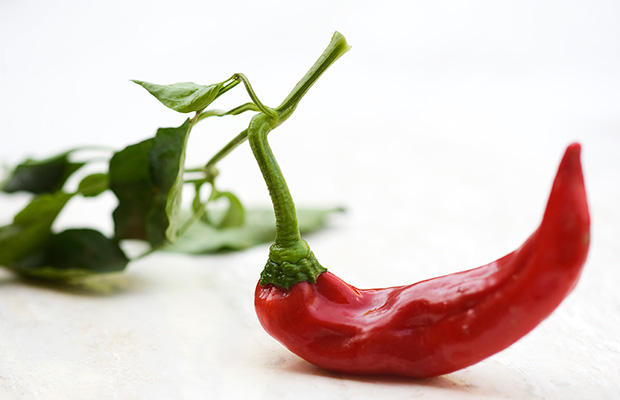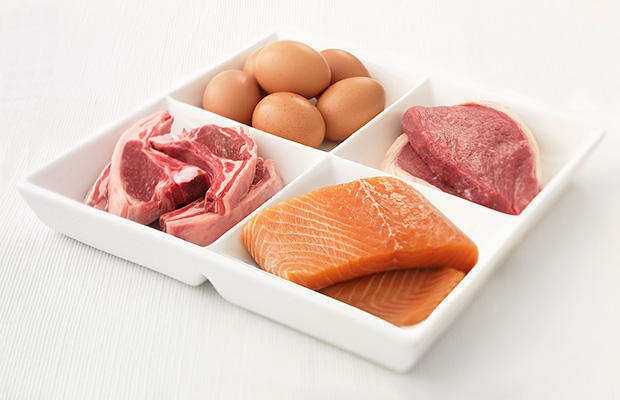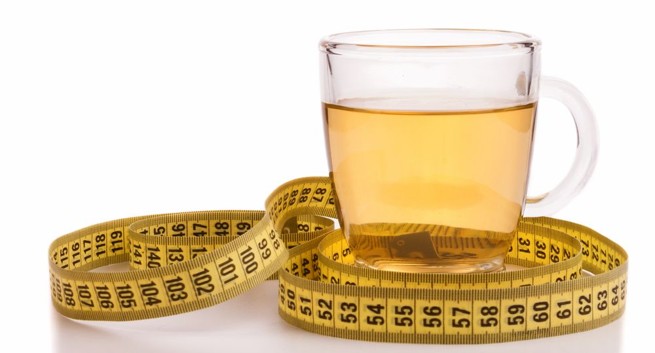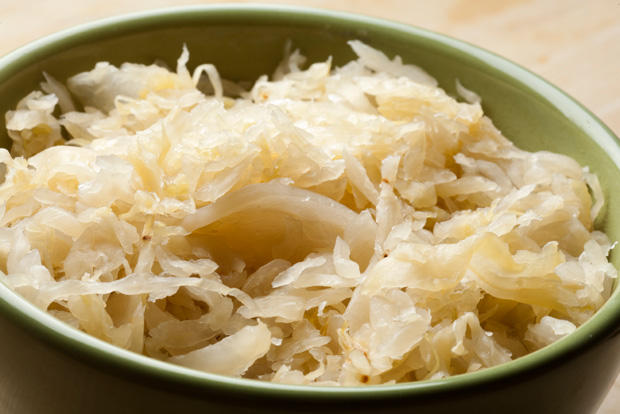Vitamin B12
Odds are you've heard a celeb or fitness nut tout the metabolism and energy-boosting benefits of B12, either through a quickie injection or pill. But the only people getting an extra dose of energy are those with a true deficiency (diagnosed through a blood test), and there's no hard evidence that B12 has the power to rev up your metabolism, says NYC-based dietitian Karen Ansel, RDN. Since your body eliminates excess B12, supplementing what you don't need in the first place is a waste of cash.
Eating Breakfast
This is a healthy habit we stand by (hey, no need to be hangry at 10 a.m. meetings), but research has shown that there's no difference in metabolic rates between those who eat breakfast every day and those who fast until noon. Though some research shows that breakfast eaters tend to be slimmer and healthier, the study authors say it's probably because they're more likely to follow other wellness recommendations like exercising and eating right.
Small, Frequent Meals
Despite the number of times you've heard that grazing is key to a fast-burning metabolism, there's little scientific proof that it works. For example, one U.K. study compared the number of calories burned in those who ate two meals a day with those who ate five and found no difference between the groups. That said, healthy snacks are never a bad idea, since they can stabilize your blood sugar levels, keep your energy up, and prevent gorging at mealtime.
Chili Peppers
 Photograph by photoalto/laurence mouton/getty images
Photograph by photoalto/laurence mouton/getty images
They won't do much sitting on top of a cheesy pizza; however, studies show that chili peppers have some fat-burning potential, thanks to an antioxidant called capsaicin, says Ansel. A study in the American Journal of Clinical Nutrition found that chili peppers could boost your resting metabolic rate by about 50 calories a day. Though that's not a significant increase, it's definitely a worthy excuse for indulging in spicy grub.
Green Tea
Another reason to go green: Compounds called catechins in green tea could help you burn more calories and fat, says Ansel. One Japanese study found that two to four daily cups could boost your metabolism by 4% for a few hours after consuming the brew. So, again, you're looking at burning up to an extra 50 calories a day, but the biggest weight loss benefit of green tea is that it can help you stay full for longer after a meal, says Ansel. And despite recent reports of green tea–related illness, as long as you buy your tea bags stateside, you shouldn't face any nasty complications.
Dairy
 Photograph by Cultura RM/Luc Beziat/getty images
Photograph by Cultura RM/Luc Beziat/getty images
Bring on the milk and cheese: Women who loaded up on dairy three to four times a day lost 70% more body fat than those who skipped dairy, according to a study published in the American Society for Nutritional Sciences Journal of Nutrition. But how does this work exactly? Dairy, which is full of calcium and fat-burners like the amino acid leucine, helps maintain lean muscle mass, which boosts metabolism, says Ansel.
Caffeine
Have you thanked your barista today? Studies show that a cup of coffee in the morning can give your metabolism a serious kick in the pants, says NYC-based dietician Leah Kaufman, RD. That's because caffeine raises your heart rate and puts your body on high alert, so your metabolism starts burning calories to meet those energy demands. Cool, huh? And sipping on any source of caffeine an hour before your workout has been shown to help you burn about 15% more calories post–sweat session than you would otherwise, according to research published in the International Journal of Sport Nutrition and Exercise Metabolism. Though that's most likely due to an increase in your respiratory rate rather than a boost to your metabolism.
Protein
 Photograph by adam gault/getty images
Photograph by adam gault/getty images
It looks like those veiny dudes in muscle Ts were on to something. Foods high in protein and low in fat, like skinless chicken breast or fish, take far more energy to digest than carbs or fat, says Ansel. So you end up burning more energy while digesting. To utilize this calorie-torching nutrient, aim to get 0.5 to 1 gram of protein per pound of body weight (that's 70 to 140 grams a day for a 140-pound woman.) Bonus: High-protein foods also contain amino acids that lean muscle—the ultimate metabolism booster—needs to grow, plus they keep you full and satisfied, says Ansel.
Sleep
Just one night of bad sleep can slow down your metabolism the next morning, reducing the energy you expend for tasks like breathing or digestion by up to 20%, according to a study in the American Journal of Clinical Nutrition. On top of that, disturbed shut-eye can seriously throw off hunger hormones leptin and ghrelin, which means you'll be hankering for that junk food you know and love.
Besides getting enough sleep, dozing off in a chilly room might help you bump up your calorie burn even more. A study published in the journal Diabetes found that those sleeping in a 66ºF room burned 7% more calories, or 100 more calories within 24 hours, than those sleeping in a 75ºF room. The study authors believe that this is caused by the participants' bodies burning extra energy to raise their core temp back up to 98.6ºF.
Strength Training
 Photograph by Lucia Lambriex/getty images
Photograph by Lucia Lambriex/getty images
Since pumping iron increases your calorie burn long after you stop working out, it's by far the best thing you can do for your metabolism, says Kaufman. Here's how it works: When you push your muscles to the max, they have to work harder to rebuild, which burns more calories. But that doesn't mean those 3-pound dumbbells are going to cut it. According to a study published in the Journal of Translational Medicine, those who participated in high-intensity resistance training using heavy weights during short intervals increased their metabolic burn by 452 calories (!) over the next 24 hours. Those who did a traditional, low-intensity program (with higher reps and lower weights) burned only 98 additional calories over the course of the day. It's official: Beast mode can help you get your burn on.
The article "10 Metabolism Boosters, Ranked According to Effectiveness" originally ran on WomensHealthMag.com.




